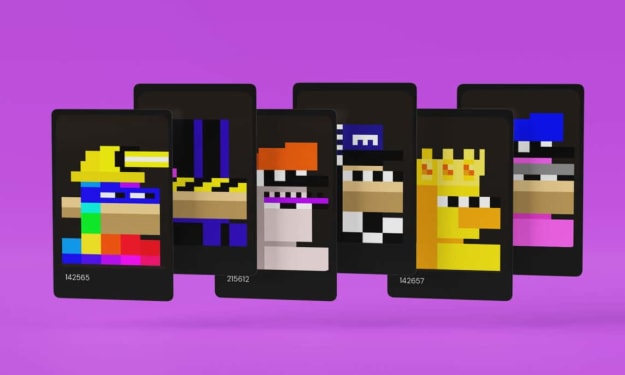
"Blockchain" this … "crypto" that. Everywhere you turned, you heard the words. Investor, techie, interested or not — you would learn today. No matter what conversation you entered, which panels you chose to sit through or what parties you attended, there was only one topic that mattered.
It was 2019 and Denver STARTUP Week had commenced. Every year, people of all industries gather from around the nation in the city by the mountains. They trade ideas, recruit, meet partners, promote and learn something new. This year, there was one thing that we would learn about, though no one truly knew what it was.
As a non-crypto concerned attendee, our team had made our way to the Rockies with the intent of branching out our physical security and smarthome system. And with the topic so highly focused on non-physical assets, the presence of physical security and smarthome experts was few and far in between. If you weren’t there to provide cybersecurity, you have no use to these techies. You’re yet another confused participant learning the ins and outs of one of the most complicated industry you have no personal investment in.
While many of the companies and industries present made their way to the convention for purposes outside of trying to understand the conundrum that is cryptocurrency, that was what we were all trying to do.
“What is blockchain?” you might ask over a beer at an industry party.
“Who even knows?”
Aha, perfect.
Blockchain technology is unique in more ways than just being a concept of mass obscurity. It’s actually quite the opposite; it’s a database of extreme transparency. Think if there was a list of records of every buy, sell, trade, transaction or other movement of commerce in the history of man. This is what blockchain does for cryptocurrencies. It’s an open, distributed ledger that can record transactions between two parties, securing the credibility of businesses or individuals involved and improving the overall efficiency of transactions.
Being that blockchain is the primary database for cryptocurrency transactions, it became a leading argument for the power of crypto. It also became a presiding topic for how attendees of the Denver STARTUP Week approached their knowledge of crypto. If you know blockchain, you know crypto.
But what about the technicalities of cryptocurrency? You can’t just know blockchain, you have to have crypto commodities to trade.
Cryptocurrency is, of course, the commerce of the web — a collection of digital assets comparable to the public market. If it were that simple alone, though, wouldn’t we all be up to our avatar’s teeth in digital riches? There has to be a cap in the market, or we’d all be billionaires. So what defines the cap? And who has all the money?
Cryptocurrency can be bought and sold through blockchain, but it can also be created or “mined.” This is done through the use of a machine and energy consumption. Miners use electricity to power and create new sources that can be exchanged for Bitcoin or other cryptocurrencies.
If you know anyone who has been mining cryptocurrencies since the earlier days, you may remember their homes being lined with computers that were constantly running. Or perhaps, as some larger companies have done, they bought a dam. Assuming the average human doesn’t have the physical means to buy a dam, they might have been running power constantly, using physical dollars on electricity, to mine a cryptocurrency. So it seems the public and crypto market is more connected than we thought.
As far as the physical manifestation of cryptocurrencies, that’s where things get complicated. Where is all of this data stored, once it’s mined?
We hear often of people saying that they have a hard drive somewhere with thousands of dollars’ worth of Bitcoin on it. This is what you would call a digital wallet. One might ask, though, how you lose a hard drive with thousands of dollars on it? The answer is simple: Because we’re humans. We lose things.
Like with public market traders, those who have a significant amount of wealth stored somewhere may want to consult an adviser. Luckily, Denver STARTUP Week introduced us to a few members of this new profession. And, though they may not have held panels to discuss their secrets of cryptocurrency protection, after a little inebriation, the tips and tricks flowed like wine.
“You know what I tell my clients about protecting their crypto assets?” asks a crypto adviser to a physical security expert. The techie adviser and the hands-on security technician could not be more different from one another on the surface and beneath. But the tech-guru tries to build understanding for the newbie. “Hide them in secure places.”
Ahh, the lightbulb switches on for the physical security expert.
“So, you’re saying people should hide their hard drives in separate, secure places where they cannot get lost or stolen?” asks the unexperienced techie. Sounds like the need for a smart, security system.
“Yes,” responds the crypto-tech adviser, “when these miners and traders have thousands or millions invested in cryptocurrency, they want to insure it’s physically protected.
For those with these kinds of assets built up in the crypto market, the last thing they should do is store everything on one hard drive. If someone were to steal it or they were to lose it, all their earnings would be gone at once.
The adviser continues, “I suggest that my clients split their assets across several hard drives and hide them in unknown places far from one another. These places need to be protected and their drives should be hidden within. No one can know where to find these.”
And the lightbulb gets brighter.
“They must be hidden and protected,” interjects the security expert. Something from Harry Potter flashes across their mind. It’s a term for when a wizard splits their soul in two and hides portions of themselves in places far apart, difficult to find and fiercely protected. In case the wizards true body is to be killed or destroyed, the security of the portions of their souls that were hidden will allow them to achieve immortality.
With this recollection, the lightbulb became fully lit. Like a true nerd, the security expert blurts out: “It’s like a Horcrux!”
“Exactly,” the techie responds. And, despite their differences, the two strangers laughed in unison.






Comments
There are no comments for this story
Be the first to respond and start the conversation.